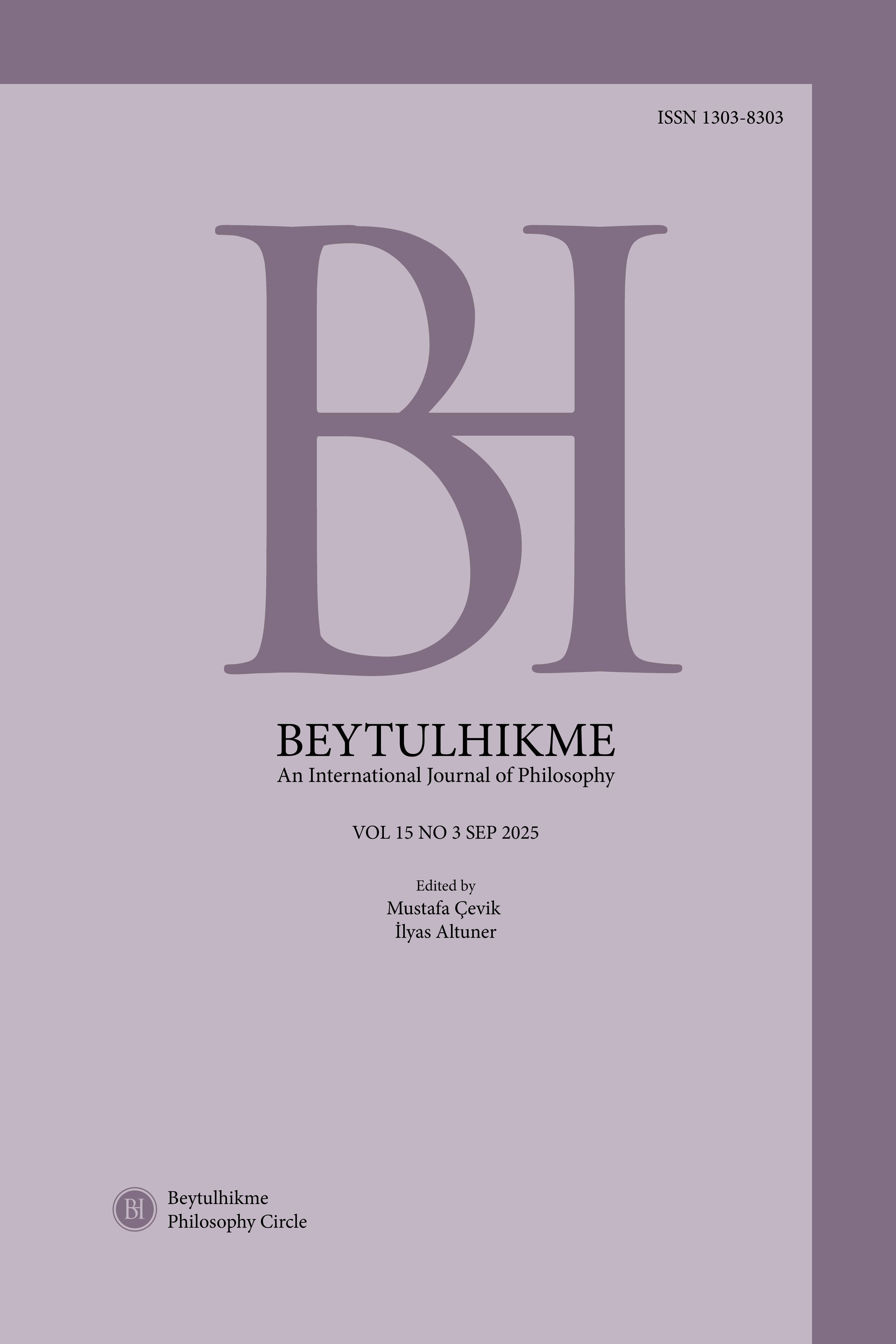Metafizikçi Ontolojiden Kelâmcı Epistemolojiye: Konusu ‘Mevcut’tan ‘Malum’a Evrilen Bir Disiplin İnşası
Author :
Abstract
Bu makale, İslam düşünce tarihinde kelâmın metafiziğe karşı kimliğini inşa etme sürecini ve bu süreçte yaşanan köklü gerilimi analiz etmektedir. Çalışmanın temel tezi, kelâm ilminin, metafiziğin “yüksek bilim” (el-‘ılmü’l-a‘lâ) olma iddiasıyla hesaplaşırken, başlangıçta metafiziğe öykünerek konu edindiği “mevcut”u giderek savunmacı bir refleksle “malum”a dönüştürdüğüdür. Makale, kelâm ilminin konu değişimini üç temel uğrak üzerinden ele almaktadır: (i) Urmevî’nin kelâmı metafiziğe tabi kılan uzlaştırıcı formülü; (ii) Gazzâlî’nin kelâmı metafiziğe rakip bir küllî bilim olarak konumlandırma çabası; (iii) Semerkandî, Îcî ve Cürcânî gibi müteahhirûn kelâmcıların felsefî metafiziğe karşı geliştirdikleri “İslam kanununa dayalı kelâm” tasavvurları. Nihai tahlilde, kelâmın metafizikten beslenen evrensel kimliğini kaybederek dinî inançları korumaya odaklı bir savunma aracına indirgendiği savunulmaktadır.
Keywords
Abstract
This article analyzes the process by which kalām constructed its identity in opposition to metaphysics in the history of Islamic thought, and the fundamental tension that arose during this process. The central thesis of the study is that the science of kalām, in its confrontation with metaphysics’ claim to be ‘the highest science’ (al-‘ilm al-a‘lā), initially adopted ‘the existent’ (al-mawjūd) as its subject matter by emulating metaphysics, but gradually transformed it into ‘the known’ (al-ma‘lūm) through a defensive reflex. The article examines the shift in kalām’s subject matter through three key stages: (i) al-Urmawī’s conciliatory formula that subordinates kalām to metaphysics; (ii) al-Ghazālī’s attempt to position kalām as a universal science rivaling metaphysics; (iii) the ‘kalām based on the Islamic canon’ conceptions developed by later kalām scholars such as al-Samarqandī, al-Ījī, and al-Jurjānī in opposition to philosophical metaphysics. Ultimately, it is argued that kalām lost its universal identity derived from metaphysics and was reduced to a defensive tool focused on protecting religious beliefs.





